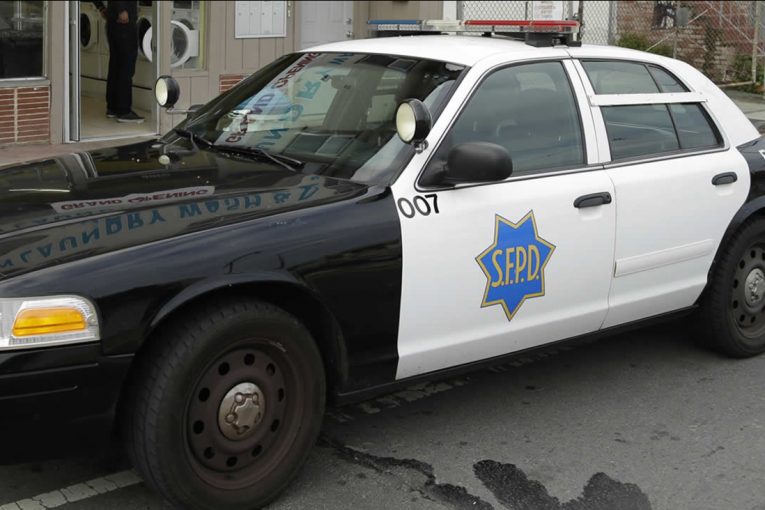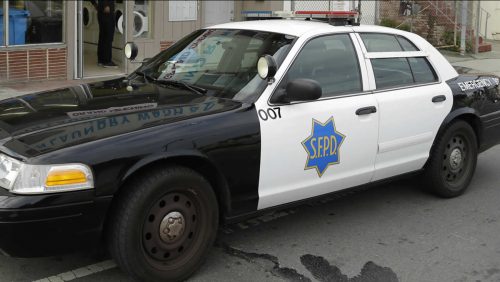

By Ayal Aglugub
SAN FRANCISCO, CA – San Francisco Standard writer Michael Barba recently wrote about the long journey to end racial discrimination in traffic stops, and how preventing police from pulling people over for minor driving offenses would be the biggest influence in San Francisco’s police reform.
Nationally, Barba wrote, both state and local lawmakers have been giving consideration to limiting the police practice of the “pretextual stop,” when a police officer pulls an individual over for a minor vehicle offense, but they actually want to investigate the driver for a separate matter.
“These unnecessary interactions lead to use-of-force violations and they unnecessarily strain the relationship between communities and police in a way that isn’t providing any public safety benefit,” stated Police Commissioner Max Carter-Oberstone, who is attempting to dismantle this practice in San Francisco.
In Philadelphia, lawmakers have begun to ban officers from pulling over individuals due to low-level traffic stops. Following this action, the Los Angeles Police Commission barred officers from practicing pretextual stops unless there was adequate evidence that the driver was a part of a serious crime.
Now San Francisco has begun to participate in banning so-called pretextual stops.
Next week, the Police Commission will overhear a possible policy that would prevent police officers from using pretextual stops in a specific range of traffic violations, including not using a turn signal, or driving with a broken brake light.
This proposal would also attempt to stop the police from going on “fishing expeditions,” or using low-level traffic stops to question people about unrelated issues, according to the Barba piece.
The proposal does make some exceptions, such as for individuals who are suspected to be involved in serious crimes. The proposal would disallow the police from making certain stops, however the police would still have the ability to enforce violations—by mailing citations for example.
Carter-Oberstone, a new member of the commission, created the proposal in retaliation of the ongoing discrimination in the data of San Francisco police stops, despite the prolonged effort to reform the department, and finally eliminate bias.
Police data by The Standard illustrates that a Black individual driving in San Francisco was four times as likely to be involved in a pretextual stop than a white person last year. The Standard said these disparities get worse.
Carter-Oberstone found that in the year 2019, “Black people were 10 times as likely to be pulled over for a subset of traffic offenses, called equipment violations.”
Carter-Oberstone suggests the issue with low-level stops is that the officer has no limit to their discretion over whom they pull over, meaning bias can implicitly shape their decision that may lead to different outcomes contingent on the driver’s race.
Carter-Oberstone also states that with departments being short of officers, pretextual stops are highly ineffective, especially in regard to controlling guns and drugs in the streets.
“We are spending a lot of officer time and money and resources on making tens of thousands of stops that are just not providing us any return on investment,” Carter-Oberstone said. “We could be rerouting all of those resources to strategies that are actually proven to stop and prevent crime.”
Carter-Oberstone drafted the proposal with the insight of the San Francisco Police Department and Department of Police Accountability.
While Chief Bill Scott was unable to comment on Friday whether or not he is a supporter or critic of the proposal, he was asked in a recent interview with The Standard if he was in support of banning pretextual traffic stops, and Scott replied that nothing was off the table.
“Bottom line, we have to address this disparity problem we have,” he said. “We can’t keep doing the same things and expect things to change.”
The proposal could get possible pushback from the police union. Tracy McCray, the acting president for the San Francisco Police Officers Association, argued that pretextual stops are an “effective tool” that protects public safety, helps the police take control of guns and drugs, and keeps criminals out of the streets.
“Telling every criminal that driving your car through San Francisco guarantees you safe passage for transporting ghost guns and other illegal firearms is reckless and dangerous to public safety,” stated McCray.
McCray’s statement was made as a generalization about pretextual stops, and had yet to review the proposal. She argued that there needed to be a deeper analysis of stop data that proves that Black drivers are stopped at different rates while factors disregarding local demographic data are being used in the calculation.
“The facts are, our officers target the behavior of drivers, not what they look like,” she said. “Any proposed policy changes should take that into account.”
Phelicia Jones, the founder of a group called Wealth and Disparities in Black Community, has implored the Police Commission to acknowledge the racial inequalities in each stop, search and use-of-force data for decades.
“It’s a way for Black people to die, especially Black men to get killed,” Jones stated. “It’s racial discrimination, it’s racial profiling and it’s harassment.”
A mix of advocacy groups starting with the ACLU of Northern California to the organization Walk SF have joined hands to demand the Police Commission end “racially biased” pretextual stops.
“I think that we are lucky an incident like what happened to George Floyd or others hasn’t happened in San Francisco,” said Brian Cox, an attorney at the SF Public Defender’s Officer and a member of the advocacy group. “That’s why we need a robust, strong policy from the commission to curb these stops.”